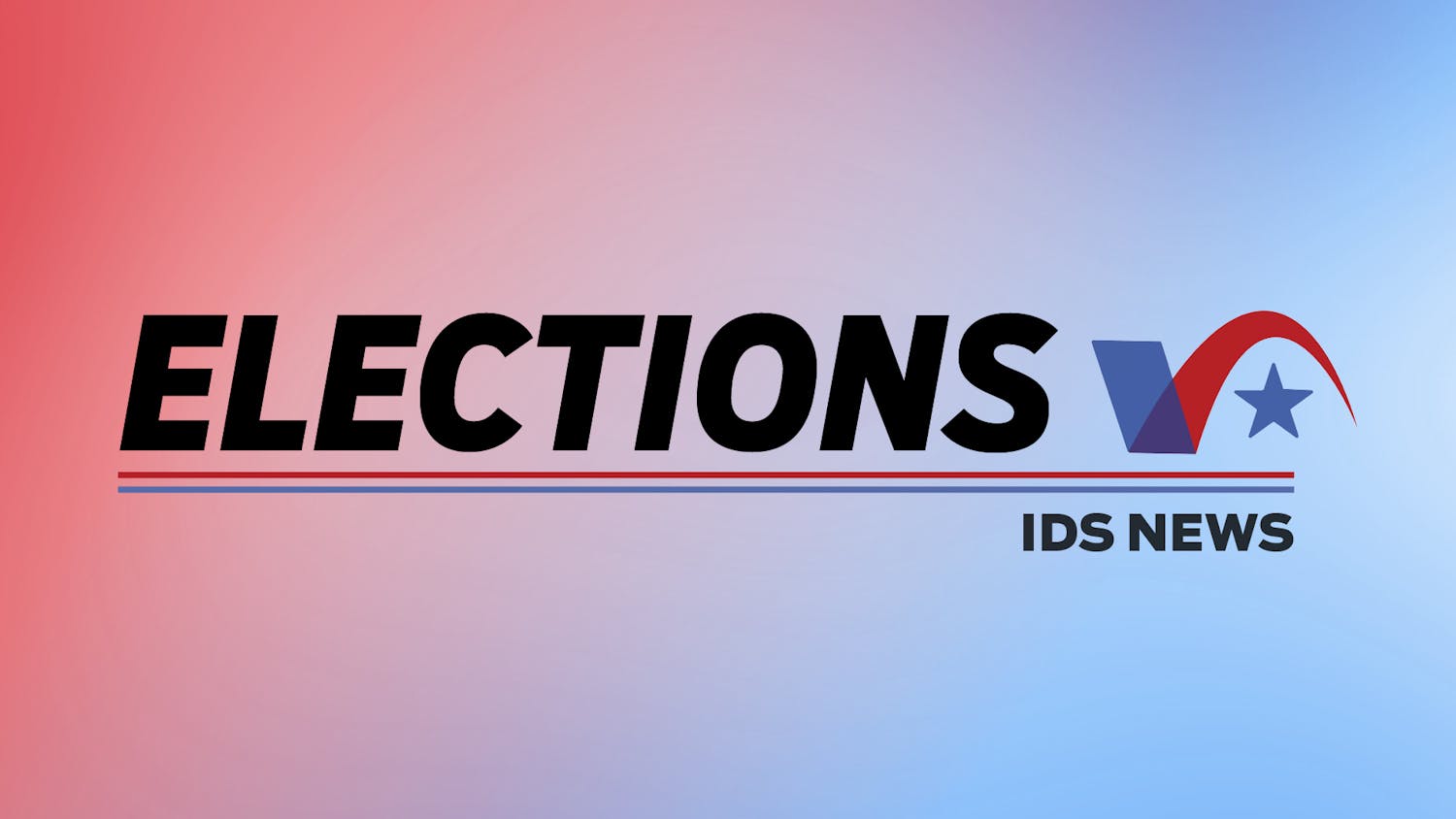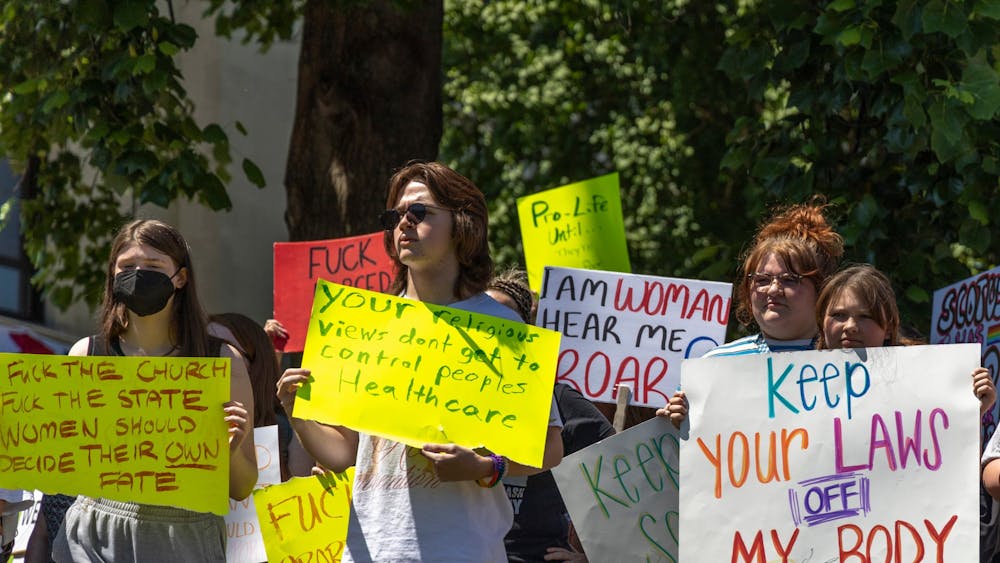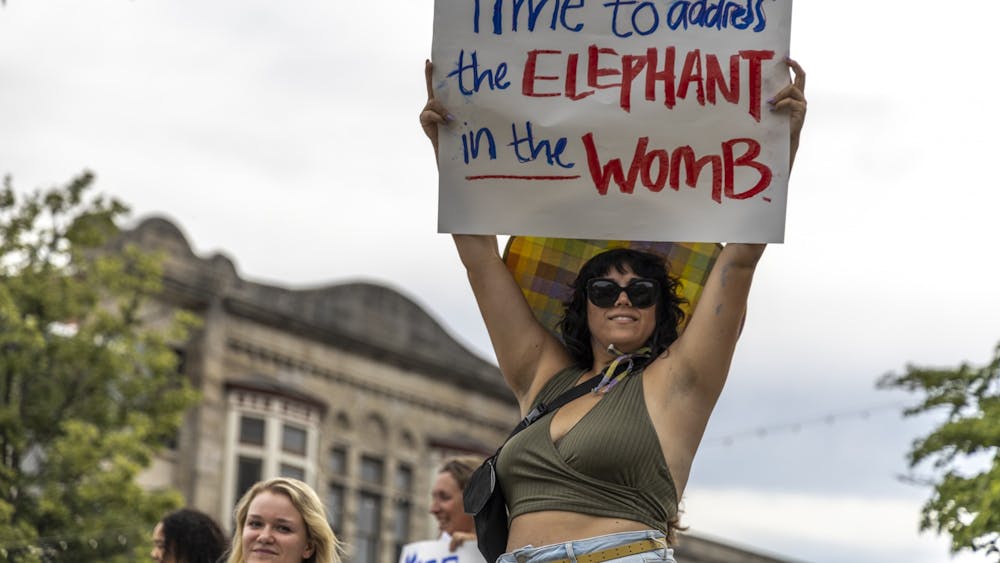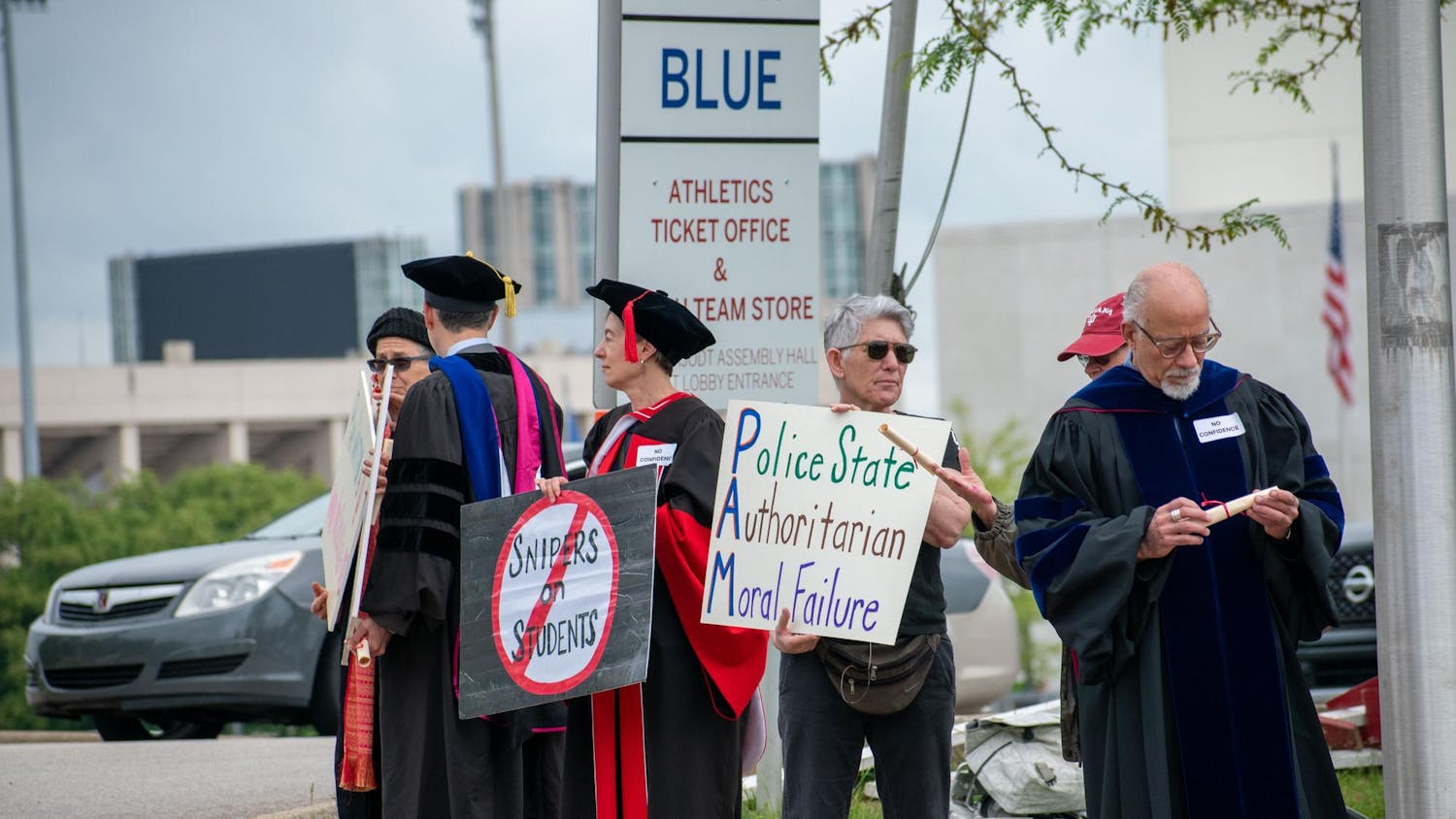Before Congressman Baron Hill, D-9th, called Tuesday’s meeting to order, laughter and small talk filled the lobby of City Hall. But as soon as Hill began speaking, the mood quickly turned serious.
Hill called an impromptu town hall meeting Tuesday in Bloomington to discuss the economic crisis and to hear questions and comments from Bloomington residents. For nearly an hour and a half, he listened to “the people” as his staff took notes.
“This is a very serious, serious situation we have on our hands,” Hill said. “I spent the whole day in Bloomington, going up and down the streets, going in the shops. What I figured out is I need to hear from you all.”
BLOG: The Politiker
The meeting comes on the heels of the Congress’ rejection of the $700 billion bailout plan and the stock market nose-diving 777 points on Monday. Hill voted against the plan.
“I voted no because I think we’re moving too fast for this,” Hill said. “We need to figure out what happened, who should be held accountable and what we need to do to get ourselves out of this.”
Hill repeatedly voiced his opinion that lawmakers weren’t taking the necessary time to evaluate the economic situation, a sentiment echoed by the local residents, many of whom commended Hill on his decision.
Hill said time is needed to assess the actual damage to the stock markets, citing the fluctuating numbers over the past few days.
“There’s been all this gloom and doom that if we do nothing, there will be a complete collapse of our economy,” Hill said. “Yesterday the market tanked. It went down 770 points. Today it’s up almost 500. We have to wait and see what these markets do.”
The theory of the bailout plan, Hill said, is that the federal government would use the money to buy the assets of different companies. The taxpayers would then be issued warrants to buy stocks in those companies, which could later be sold for a profit.
As for how economists came up with the $700 billion figure, Hill, who served on the Joint Economic Commission, is unsure.
“I asked that question myself,” he said. “Apparently it’s 5 percent of the gross domestic product. Why 5 percent? I don’t know. I asked (Federal Reserve Chairman Ben) Bernanke, and he said something about some economic formula.”
Hill said the proposal that was rejected on Monday was a $250 billion proposal, with conditions built in for an extra $450 billion if necessary.
The audience’s main concerns seemed to be health care, alternative fuel sources, the housing market and accountability for the current situation.
“I hope this is going on all around the country,” local resident Scott Alber said of the meeting.
Another Bloomington resident, Tom Zeller, agreed.
“He was here to listen to what everyone had to say,” he said.
Hill told the crowd he would keep them updated on what’s going on in Washington, where the House will meet again on Thursday to reconsider its options. The Senate was scheduled to vote on the proposal today, but Hill said they postponed any action until the House acted first.
“I will try to keep you informed,” he said. “I don’t know if I’ll be able to come back and hold another town hall meeting, but if that’s what it takes, and I think its important that we do that, then we’ll do it again.”
Congressman addresses state of the economy
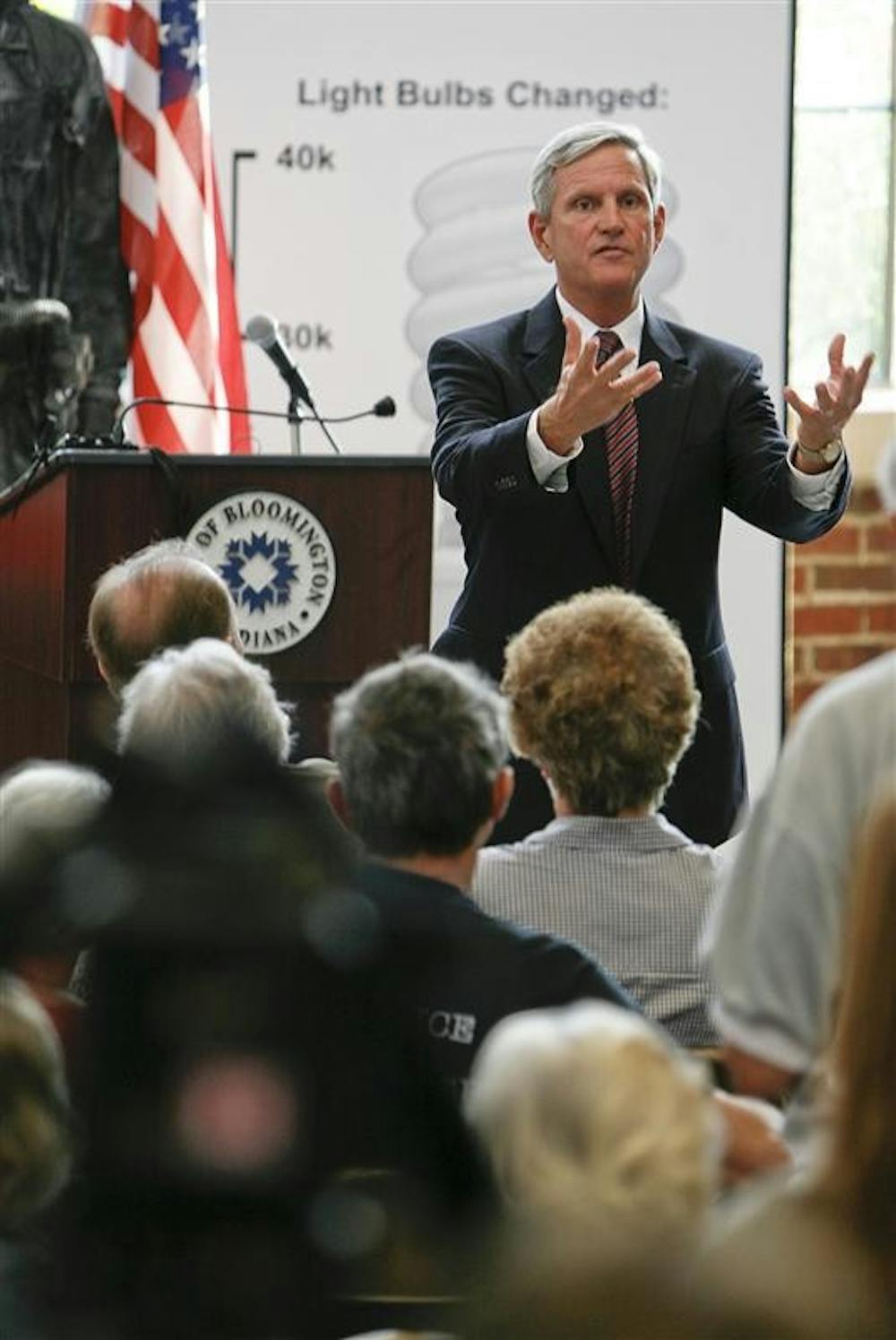
Get stories like this in your inbox
Subscribe


